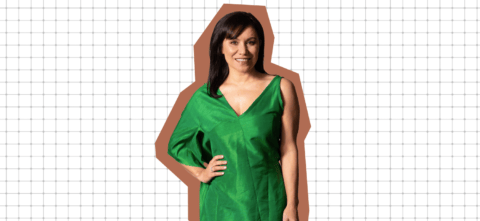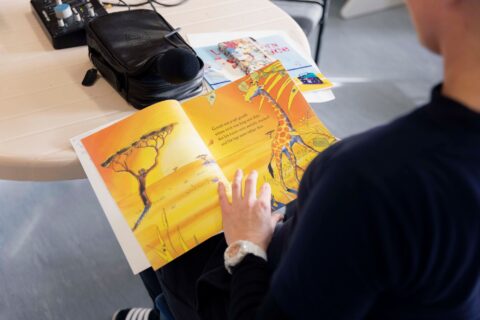NZ Mental Health Awareness Week starts today and runs from 18 – 24 September. The official theme for 2023’s Mental Health Awareness Week is anxiety, the aim is to look at how anxiety can affect people, what external factors can trigger this strong response, and what we can do to support our peers during times of increased anxiety.
With a focus this year around anxiety we want to be able to cultivate a mindset that helps us feel not so overwhelmed by life’s commitments and challenges. We take on so much and often fill our days with responsibilities and tasks, not all of which we can control but we can control how we respond to these things. The focus for this year is looking at your priorities and weighing them up as to what you need to do and what you don’t need to do. Time management is a big part of not feeling anxious so this week stop to look at how you can plan your time and prioritise things that are sustainable for you, rather than overwhelming yourself, ask someone you trust to help you do this if you need. Having an outside perspective can sometimes help to gain clarity.
Nurturing yourself with a meditation practice and getting out into nature are great ways to help alleviate anxiety, so is creating and stopping to appreciate beauty in your life in small ways as this helps to ground us in the present moment.
The number of people who partake in a regular meditation practice is on the increase. Meditation is a powerful tool that we can all benefit from, it can strengthen areas of the brain responsible for memory, learning, attention and self-awareness. The practice can also help calm the sympathetic nervous system, and over time, practicing meditation can even increase cognition, memory and attention span.
In New Zealand 1 in 5 adults aged 15 years and over are diagnosed with a mood and/or anxiety disorder, nearly half the population will meet the criteria for a mental illness diagnosis at some stage during their lives, and one in five of us will experience depression in any given year. These alarming statistics are also on the rise. Now, more than ever, it’s important that we support each other in daily wellbeing and mental health practices, and meditation is a great place to start!
The reason meditation is so powerful is that it causes shifts in both our awareness and our responses. Many people over-identify with their thoughts and emotions, particularly negative and stressful ones, which can prolong them and make them feel bigger than they are. According to neuroscience research, mindfulness practices such as meditation dampen activity in our amygdala and increase the connections between the amygdala and prefrontal cortex. Both of these parts of the brain help us to be less reactive to stressors and to recover better from stress when we experience it.
Daily meditation has been shown to decrease anxiety and improve cognitive functioning in new meditators after eight weeks, it was also shown to decrease negative moods, lower the risk of depression, improve attention, working memory and recognition memory in new meditators. In a published study conducted at Google and Roche, in which employees used the Headspace app for eight weeks, participants reported a 46% reduction in depression and a 31% reduction in anxiety.
Daily meditation can even help us perform better at work! Research found that meditation helps increase focus and attention and improves our ability to multitask!
Meditation also helps clear our minds and focus on the present moment rather than reliving painful past experiences or living in fear about future events.
Benefits Of Meditation Include:
- Reduces stress
- Lowers risk of depression
- Promotes productivity and increased cognitive ability
- Helps with focus and mental clarity
- Improves relationships
- Regulates mood
- Calms the sympathetic nervous system
- Increases sleep quality and can improve sleep disorders such an insomnia
The rise of those practicing meditation is fuelled by the increase in access to helpful apps on our smart phones and the availability and ease of access to online courses. Popular meditation apps include Calm, Buddhify, Happify, Headspace, Smiling Mind and our very own New Zealand owned and operated app – The Beacon by Soul 33. The Beacon by Soul33’ launched in March of 2020, Founder Gaia Chinniah knew she needed a solution that empowered and inspired people daily, that was accessible from all around the world.
Gaia recommends finding a meditation app that feels right for you. “Having support through a guided meditation app helps take the guesswork out about what you should do or where you should go. Its important that users find an app that feels right for and resonates for them. I suggest trialling two or three and finding the best fit for you.” adds Gaia.
The Beacon by Soul 33 is available for download on both Apple and Android devices. Search ‘Soul33’ in your App Store. There is a free version of the app with more limited features, and the paid version of the app costs $60 per year, which gives users access to the full meditation library.
Gaia is an internationally known healer, medium and spiritual coach. She founded Soul33 a healing company and the modality of Soul Progression Therapy ® when she had an awakening at the age of 33. She channels messages from spirit guides, uses energy healing and is able to speak to your soul and see your past lives. She sees your soul blueprint. She reminds you who you are in a very practical way. Gaia has a Masters in Management Studies, is a Reiki Master and has a qualification from Omega Institute New York in Past Life Regression Therapy. She has created a spiritual guidance app and is the founder of Spiritual Health Magazine to help others understand their journey.
Website: www.soul33.com | Facebook: @soulthirtythree | Instagram: @soulthirtythree








